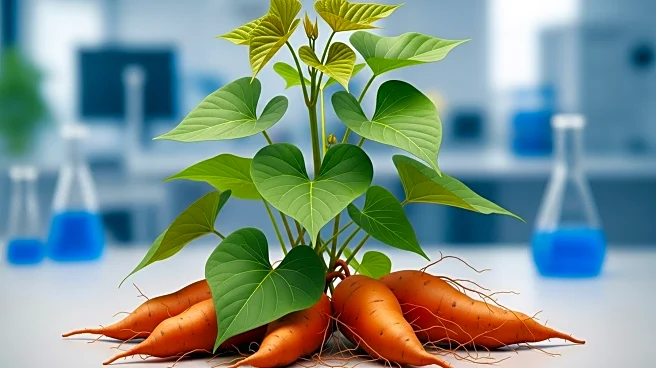What's Happening?
Researchers at the Boyce Thompson Institute have successfully decoded the complex genome of the sweetpotato, a vital crop for food security in sub-Saharan Africa. Led by Professor Zhangjun Fei, the team used advanced DNA sequencing techniques to unravel the genetic makeup of the 'Tanzania' variety, known for its disease resistance and high dry matter content. The sweetpotato's genome is hexaploid, meaning it has six sets of chromosomes, which posed a significant challenge in organizing them into their original sets. The study revealed the sweetpotato's genome is a mosaic of multiple wild ancestors, contributing to its adaptability and resilience.
Why It's Important?
The decoding of the sweetpotato genome provides powerful tools for improving this essential crop, which is crucial for subsistence farmers worldwide. Understanding the genetic complexity allows breeders to identify genes responsible for key traits such as yield, nutritional content, and resistance to drought and disease. This precision in genetic understanding could accelerate the development of improved sweetpotato varieties, enhancing food security in regions vulnerable to climate extremes. The research also demonstrates the potential of modern genomic tools to decode other complex genomes, aiding in the breeding of resilient crops.
What's Next?
Further research is needed to decode multiple sweetpotato varieties from different regions, as each may carry unique genetic features. This comprehensive understanding will enable breeders to develop varieties with enhanced traits. The study's findings could also be applied to other crops with complex genomes, such as wheat and cotton, to address global food security challenges.
Beyond the Headlines
The sweetpotato's genetic architecture, classified as a 'segmental allopolyploid,' highlights its unique adaptability and resilience. This genomic merging allows the plant to maintain backup copies of important genes, aiding survival in diverse environments. The research underscores the importance of genetic diversity in crop resilience, offering insights into sustainable agricultural practices.










